How to Surf Bigger Waves
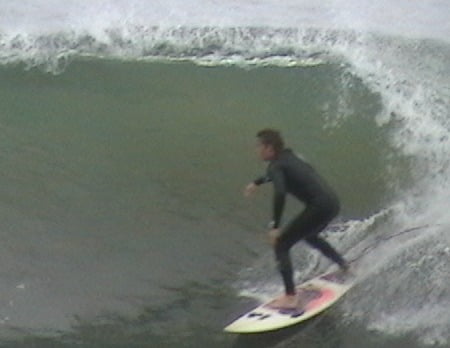
Beginner surfers usually have their thoughts running on How to Surf Bigger Waves. Surfers start with foam waves near the beach and then paddle out to catch bigger foam waves and small real waves.
Small real waves require more paddling than bigger real waves because they don’t get steep and don’t have much push. Whereas three hard paddles will launch a surfer on a foam wave, it may take ten paddles to get in front of a small (2′-3′) real wave.
Transition from Smaller Real Waves to Bigger Ones
After that a surfer finds that a bigger real wave lifts the tail of the board and a surfer needs three good paddles to catch it. Waves can be caught down the face, pointing toward the pocket, pushing the nose toward the pocket after catching the wave, and at the corners where the wave is smaller.
Most surfers that enter the water frequently can work their way to catching 5′ to 6′ waves. On a sandbar beach like Oceanside, those waves are steep and often close out, The surfer has to have a fast solid pop up and bottom turn into the pocket. Most surfers on these waves try to angle toward the pocket immediately if it isn’t too steep.
Riding Beyond 6′ Real Waves
After 6′ the number of surfers thin out. Bigger waves move faster, have more weight, and deliver more crushing impact to surfers paddling out and falling off the lip. It takes a whole new level of courage and skill to ride over 6′ waves.
The surfboards used can be a wide variety. There have been surfers in Oceanside that have ridden 7’+ waves on soft tops. They were big wave riders who knew their stuff. Long boards will work. Most of the surfers are short boarders because they have the proven skills, strength, stamina, and courage. They might be young.
Pro surfers who ride 20’+ waves have said they were terrified at each step up. Dave Kalama, the protegee of Laird Hamilton says we don’t measure in feet but rather in increments of terror. Most surfers are afraid but they learn how to manage that fear. Serious injury is possible on bigger waves and so are hold downs where the surfer doesn’t get air for a few waves.
Timing and Positioning Become Basic Skills
Surfers learn to time waves and get in position. Both are crucial in bigger waves. The surfer sees the wave forming and paddles to the spot he judges where it will arc. Arcs only last a few seconds and the surfer has to let the wave come under his board until the tail reaches near the top before paddling down.
He keeps perfecting this technique as waves get larger. The surfer either drops down the face or points toward the pocket if the wave is not too steep. The steeper the wave, the faster the surfer has to accelerate down the line to avoid the falling lip. On reefs, the bigger waves often barrel and now the surfer often grabs an outside rail to keep the other rail into the face.
Surfers Have Different Pop Ups
Surfers have different techniques on how fast they release their hands from the board and how quickly they stand upright. Some place both feet on the board while still holding on, stay in a low croutch, and then gradually stand up as they enter the pocket. Others pop up releasing their hands as their feet hit the board and are upright as they drop or angle.
Accelerating is the first maneuver as the surfer moves the nose of the board up and down the face with his front foot two or three times before he starts his first trick or maneuver. The speed of the wave increases as it gets bigger. Catching bigger waves requires more paddling strength. It gets built as the surfer progresses.
Most professional surfers work on conditioning for more time out of the water than they spend surfing. Strength and flexibility is important to ride waves and avoid injury. Yoga is the minimum stretching routine. Building upper, lower, and core body strength are all important.
The surfer builds massive confidence. Laird Hamilton warns newbies who want to surf Jaws that if they don’t think they can do it, don’t even try it.
More Posts
Oceanside Surf Lessons for Beginners
Beginner Surfers Learn the Pop Up
How to Progress to Surfing the Short Board
For Surf Lessons in Oceanside, see the Home Page
To in surfing shape see my website Get Fit to Surf
See me on Instagram
The Surfing Trilogy combines three books into one E-Book. Learn in one easy to read concise volume how to lose weight, get fit, and learn to surf.
It combines the books: The 3 Week Plan, Get Fit to Surf, and Learn to Surf Guide
Buy the E-Book on Amazon for $6.99
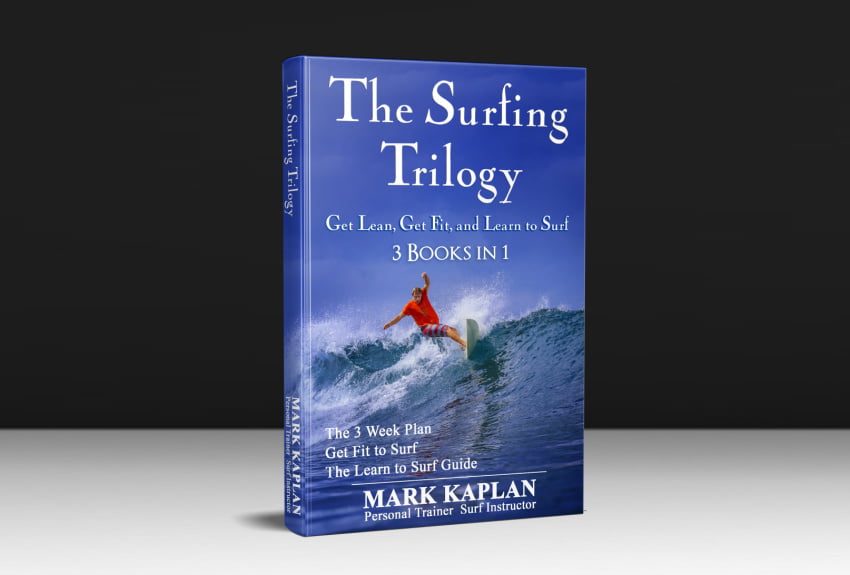
Want to get in great shape for surfing and an improved lifestyle? Start with the Free E-Book The 3 Week Plan. It is the perfect start for getting in great shape and losing weight.
Consider Coaching and the Surf Package the combines Surf Lessons and Fitness Coaching
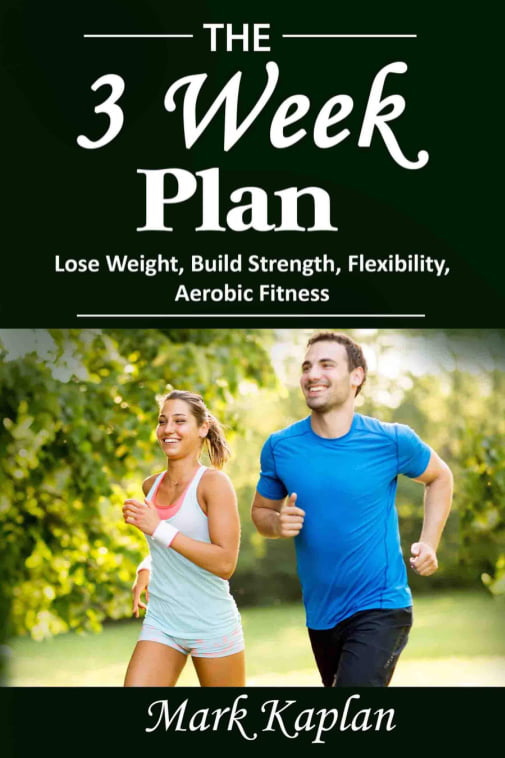
Learn More
Get my new book Get Fit to Surf
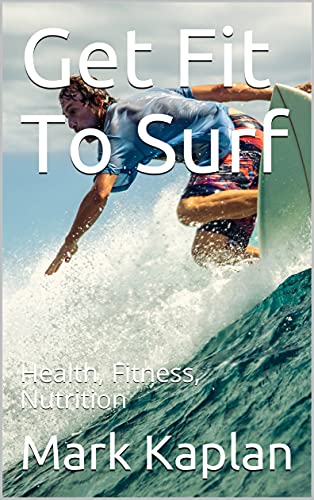
Its time to get back in shape. This book discusses strength, flexibility, stamina, and nutritional needs for getting in shape and losing weight. It is the great guide to get back to fitness for all your recreational desires. If you can surf, you can do most anything.
Buy on Kindle for $2.99 or Paperback on Amazon for $6.95
Get the Learn to Surf Guide Course in Kindle, Paperback or Audio
Get a FREE audio version on Sound Cloud
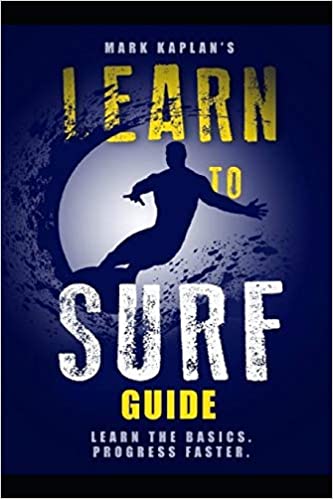
A great 29 page course on the fundamentals of catching waves, doing beginner and advanced pop ups, riding real waves, how to do maneuvers on real waves, which surfboards to ride, and how to progress. Great for lesson preparation, after lesson review, or learning on your own.
Kindle price $2.99 on Amazon. Paperback price $6.95 on Amazon. Audio download price $7.95
Seniors Get Fit to Surf
Description:
Seniors often ask if it is too late to learn to surf. Age is functional not chronological. If people have been exercising and maintaining body strength, surfing can be accomplished. If people have not been exercising, then getting in shape to surf could be a life changing move. Learn how to develop strength, flexibility, and stamina to learn surfing. If you are in surf shape, you could pursue most any recreation.
Buy the E-book on Amazon for $2.99
Buy the Paperback on Amazon for $6.95
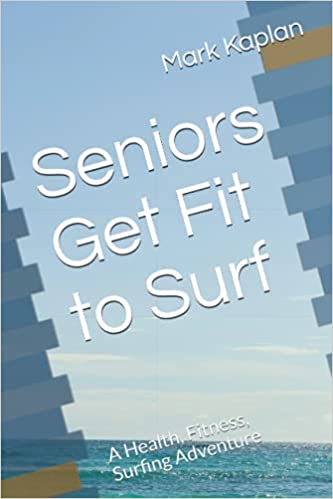
Receive Weekly Active Lifestyle Tips on Nutrition Merchandise, Losing Weight, Getting Fit, Recipes, Meal Plans, Exercise Videos